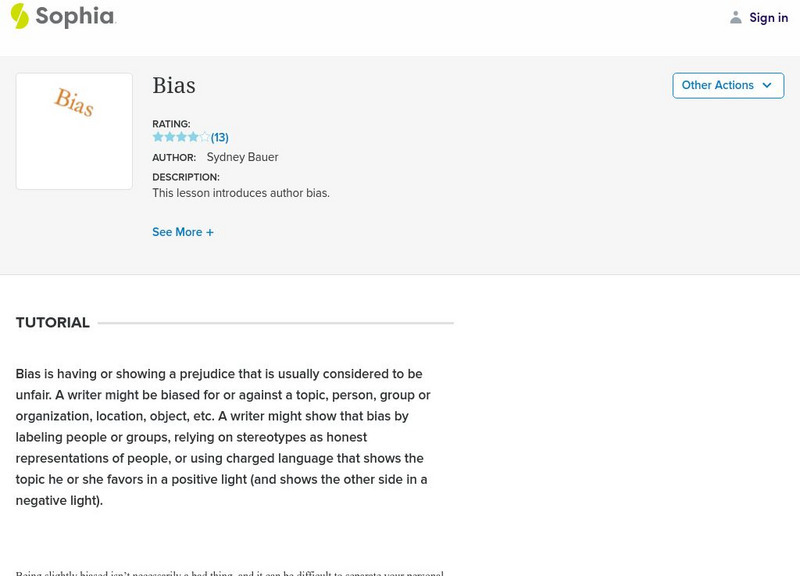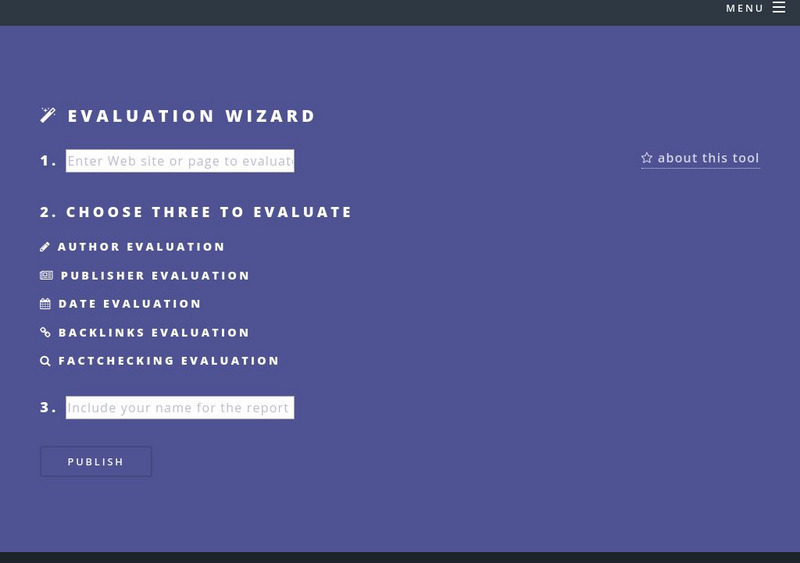Curated OER
Separating Fact from Fiction
For this English grammar worksheet, students study a chart of definitions and pointers. Students then read 5 explanations as to how to separate fact from fiction.
Curated OER
Declaration of Independence
Eleventh graders interpret and analyze political cartoons. In this primary source analysis lesson, 11th graders examine the implications of Industrialization as they respond to questions regarding selected political cartoons about the...
Curated OER
The Skinny on Sororities
Students explore the boundary between membership exclusivity and illegal discrimination in private organizations by examining a recent case of alleged discrimination in a college.
Curated OER
The Diary of Anne Frank: Research Project on Concentration Camps during World War II
Eighth graders investigate the Holocaust and the persecution of specific ethnic groups in Europe during World War II.
Curated OER
How are Boundaries Created?
Students examine two new concepts: orientalism and objectification. They view two film clips/videos on Seven Years in Tibet with Brad Pitt to incorporate the new concepts. In addition, students read Orientalism and write key questions...
Curated OER
How Are Boundaries Made, Kept, Broken?
Students write a first draft of an essay reflecting their opinions of Things Fall Apart. They complete their circle diagrams, have them approved by the teacher, and write their essays. They write in their dialectical journals as they...
Curated OER
How Are Boundaries Made, Kept, Broken?
Students examine the different perspectives of Igbo women. They simulate a silent debate in response to the question, "Is the Igbo society sexist?" They write their response to the question and exchange papers with their partner as the...
Curated OER
How Are Boundaries Made, Kept, Broken?
Students complete essays reflecting themes in Things Fall Apart. They use Microsoft Word to revise, edit, and complete their essays. They complete their dialectical journals for Things Fall Apart.
Curated OER
How Was the Inside vs. Outside Paradigm Created?
Tenth graders write notes from a teacher lecture on Slavery and Exploitation. They review process for notetaking, symbols and abbreviations. They read three web articles about slavery and create a rubric for evaluating the quality of a...
Curated OER
Region, History, and the Novel: Is Resistance Futile?
Students read a novel related to their geographical area and "Gone With The Wind". Using the first novel, they use the internet to research one aspect from it and relate it to their location today. They create a Hyperstudio or PowerPoint...
Curated OER
Women's Roles: Then and Now
Fourth graders investigate women's roles during the frontier era in what is today's West Virginia. In this US history lesson plan, 4th graders discuss similarities and differences of women's roles in the past with what women's...
Curated OER
The "Coal LIfecycle" Scrapbook
Students discover how coal is formed. In this science lesson, students create a scrapbook on the life cycle of coal and show how coal is formed by showing pictures of each stage.
Sophia Learning
Sophia: Bias
Notes introducing bias and demonstrating how to identify slight, moderate, and strong bias in a text. Notes can be both read and listened to.
Sophia Learning
Sophia: Identifying Bias
This lesson explains how to identify an author's bias. This tutorial lesson shares a short slideshow with the lesson's content. An additional link is also provided to supplement this lesson on bias.
Annenberg Foundation
Annenberg Learner: Journey North: Reading Strategies: Identify Author's Viewpoint
This reading resource discusses the strategy of identifying an author's viewpoint. A list of guiding questions is provided to help students as they analyze the author's viewpoint.
Virtual Salt
Virtual Salt: Biases Affecting Information Processing
Author discusses eleven separate biases that can affect decision making. Also provides several factors at the bottom of the page which negatively influence decisions.
Better Lesson
Better Lesson: The True Story of Christopher Columbus
For this lesson, 5th graders analyze two nonfiction passages on Christopher Columbus to determine facts and author's bias and its influence on the readers.
Indiana University
Iu: Literature as Lessons on the Diversity of Culture
Very scholarly article that looks at the role literature helps teach us about the diversity of our culture. The author looks at various aspects of literature and then gives teacher resources and a helpful bibliography.
Information Fluency
Imsa 21 Cif Portal: Evaluation Wizard
Internet content is not reviewed like published written material - so how do you know if the information you found on the Internet is reliable? Use this Evaluation Wizard to guide you through a thorough assessment of any Internet...
Other
Committee for a Responsible Federal Budget: The Debt Fixer
Although it's a game simulation here, in real life Congress and U.S. citizens must make hard decisions to stabilize the economy. Authors may be biased toward a certain political party, but nevertheless, the exercise in making tough...
Other
Walt's Navigating the Net Forum: Evaluating Quality
This article helps searchers develop evaluation skills in judging information and helps web content developers increase the credibility of their materials for those looking for quality on the net.
Other
Web Quest: Websites Which Ones Should You Trust?
Use your detective skills to decide which websites you should trust. This site offers a useful WebQuest to help you in your sleuthing.
University of California
University of California: 1895 1923 Mrs. Ayrton
This article, "Reminiscences written by A. P. Trotter, President of The Institution of Electrical Engineers," recounts the author's appreciation for the work of Mrs. Hertha Ayrton, a brilliant experimental scientist who made significant...
Other popular searches
- Author's Bias Worksheet
- Author's Bias & Propaganda
- Authors Bias and Opinion
- Author's Bias in Literature
- Author's Bias Pocahontas
- Author's Bias 6th Grade
- Author's Bias 5th Grade
- Author's Bias 3rd Grade
- Author's Bias in Reading
- Authors Bias & Propaganda
- Identifying Author's Bias
- Identifying Authors Bias





















